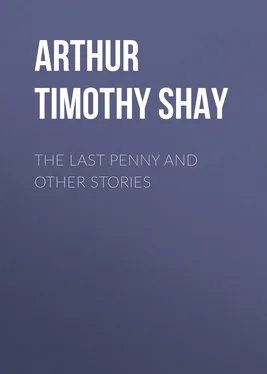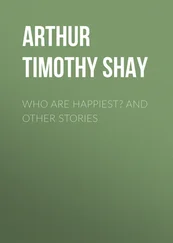Timothy Arthur - The Last Penny and Other Stories
Здесь есть возможность читать онлайн «Timothy Arthur - The Last Penny and Other Stories» — ознакомительный отрывок электронной книги совершенно бесплатно, а после прочтения отрывка купить полную версию. В некоторых случаях можно слушать аудио, скачать через торрент в формате fb2 и присутствует краткое содержание. Жанр: foreign_sf, literature_19, foreign_antique, foreign_prose, на английском языке. Описание произведения, (предисловие) а так же отзывы посетителей доступны на портале библиотеки ЛибКат.
- Название:The Last Penny and Other Stories
- Автор:
- Жанр:
- Год:неизвестен
- ISBN:нет данных
- Рейтинг книги:3 / 5. Голосов: 1
-
Избранное:Добавить в избранное
- Отзывы:
-
Ваша оценка:
- 60
- 1
- 2
- 3
- 4
- 5
The Last Penny and Other Stories: краткое содержание, описание и аннотация
Предлагаем к чтению аннотацию, описание, краткое содержание или предисловие (зависит от того, что написал сам автор книги «The Last Penny and Other Stories»). Если вы не нашли необходимую информацию о книге — напишите в комментариях, мы постараемся отыскать её.
The Last Penny and Other Stories — читать онлайн ознакомительный отрывок
Ниже представлен текст книги, разбитый по страницам. Система сохранения места последней прочитанной страницы, позволяет с удобством читать онлайн бесплатно книгу «The Last Penny and Other Stories», без необходимости каждый раз заново искать на чём Вы остановились. Поставьте закладку, и сможете в любой момент перейти на страницу, на которой закончили чтение.
Интервал:
Закладка:
T. S. Arthur
The Last Penny and Other Stories
THE LAST PENNY
THOMAS CLAIRE, a son of St. Crispin, was a clever sort of a man; though not very well off in the world. He was industrious, but, as his abilities were small, his reward was proportioned thereto. His skill went but little beyond half-soles, heel-taps, and patches. Those who, willing to encourage Thomas, ventured to order from him a new pair of boots or shoes, never repeated the order. That would have been carrying their good wishes for his prosperity rather too far.
As intimated, the income of Thomas Claire was not large. Industrious though he was, the amount earned proved so small that his frugal wife always found it insufficient for an adequate supply of the wants of the family, which consisted of her husband, herself, and three children. It cannot be denied, however, that if Thomas had cared less about his pipe and mug of ale, the supply of bread would have been more liberal. But he had to work hard, and must have some little self-indulgence. At least, so he very unwisely argued. This self-indulgence cost from two to three shillings every week, a sum that would have purchased many comforts for the needy family.
The oldest of Claire's children, a girl ten years of age, had been sickly from her birth. She was a gentle, loving child, the favourite of all in the house, and more especially of her father. Little Lizzy would come up into the garret where Claire worked, and sit with him sometimes for hours, talking in a strain that caused him to wonder; and sometimes, when she did not feel as well as usual, lying upon the floor and fixing upon him her large bright eyes for almost as long a period. Lizzy was never so contented as when she was with her father; and he never worked so cheerfully, as when she was near him.
Gradually, as month after month went by, Lizzy wasted away with some disease, for which the doctor could find no remedy. Her cheeks became paler and paler, her eyes larger and brighter, and such a weakness fell upon her slender limbs that they could with difficulty sustain her weight. She was no longer able to clamber up the steep stairs into the garret, or loft, where her father worked; yet she was there as often as before. Claire had made for her a little bed, raised a short space from the floor, and here she lay, talking to him or looking at him, as of old. He rarely went up or down the garret-stairs without having Lizzy in his arms. Usually her head was lying upon his shoulder.
And thus the time went on, Claire, for all the love he felt for his sick child—for all the regard he entertained for his family—indulging his beer and tobacco as usual, and thus consuming, weekly, a portion of their little income that would have brought to his children many a comfort. No one but himself had any luxuries. Not even for Lizzy's weak appetite were dainties procured. It was as much as the mother could do, out of the weekly pittance she received, to get enough coarse food for the table, and cover the nakedness of her family.
To supply the pipe and mug of Claire, from two to three shillings a week were required. This sum he usually retained out of his earnings, and gave the balance, whether large or small, to his frugal wife. No matter what his income happened to be, the amount necessary to obtain these articles was rigidly deducted, and as certainly expended. Without his beer, Claire really imagined that he would not have strength sufficient to go through with his weekly toil—how his wife managed to get along without even her regular cup of good tea, it had never occurred to him to ask—and not to have had a pipe to smoke in the evening, or after each meal, would have been a deprivation beyond his ability to endure. So, the two or three shillings went regularly in the old way. When the six-pences and pennies congregated in goodly numbers in the shoemaker's pocket, his visits to the ale-house were often repeated, and his extra pipe smoked more frequently. But, as his allowance for the week diminished, and it required some searching in the capacious pockets, where they hid themselves away, to find the straggling coins, Claire found it necessary to put some check upon his appetite. And so it went on, week after week and month after month. The beer was drunk, and the pipe smoked as usual, while the whole family bent under the weight of poverty that was laid upon them.
Weaker and weaker grew little Lizzy. From the coarse food that was daily set before her, her weak stomach turned, and she hardly took sufficient nourishment to keep life in her attenuated frame.
"Poor child!" said the mother one morning, "she cannot live if she doesn't eat. But coarse bread and potatoes and buttermilk go against her weak stomach. Ah me! If we only had a little that the rich waste."
"There is a curse in poverty!" replied Claire, with a bitterness that was unusual to him, as he turned his eyes upon his child, who had pushed away the food that had been placed before her, and was looking at it with an expression of disappointment on her wan face. "A curse in poverty!" he repeated. "Why should my child die for want of nourishing food, while the children of the rich have every luxury?"
In the mind of Claire, there was usually a dead calm. He plodded on, from day to day, eating his potatoes and buttermilk, or whatever came before him, and working steadily through the hours allotted to labour, his hopes or fears in life rarely exciting him to an expression of discontent. But he loved Lizzy better than any earthly thing, and to see her turn with loathing from her coarse food, the best he was able to procure for her, aroused his sluggish nature into rebellion against his lot. But he saw no remedy.
"Can't we get something a little better for Lizzy?" said he, as he pushed his plate aside, his appetite for once gone before his meal was half eaten.
"Not unless you can earn more," replied the wife. "Cut and carve, and manage as I will, it's as much as I can do to get common food."
Claire pushed himself back from the table, and without saying a word more, went up to his shop in the garret, and sat down to work. There was a troubled and despondent feeling about his heart. He did not light his pipe as usual, for he had smoked up the last of his tobacco on the evening before. But he had a penny left, and with that, as soon as he had finished mending a pair of boots and taken them home, he meant to get a new supply of the fragrant weed. The boots had only half an hour's work on them. But a few stitches had been taken by the cobbler, when he heard the feeble voice of Lizzy calling to him from the bottom of the stairs. That voice never came unregarded to his ears. He laid aside his work, and went down for his patient child, and as he took her light form in his arms, and bore her up into his little work-shop, he felt that he pressed against his heart the dearest thing to him in life. And with this feeling, came the bitter certainty that soon she would pass away and be no more seen. Thomas Claire did not often indulge in external manifestations of feeling; but now, as he held Lizzy in his arms, he bent down his face and kissed her cheek tenderly. A light, like a gleam of sunshine, fell suddenly upon the pale countenance of the child, while a faint, but loving smile played about her lips. Her father kissed her again, and then laid her upon the little bed that was always ready for her, and once more resumed his work.
Claire's mind had been awakened from its usual leaden quiet. The wants of his failing child aroused it into disturbed activity. Thought beat, for a while, like a caged bird, against the bars of necessity, and then fluttered back into panting imbecility.
At last the boots were done, and with his thoughts now more occupied with the supply of tobacco he was to obtain than with any thing else, Claire started to take them home. As he walked along he passed a fruit-shop, and the thought of Lizzy came into his mind.
Читать дальшеИнтервал:
Закладка:
Похожие книги на «The Last Penny and Other Stories»
Представляем Вашему вниманию похожие книги на «The Last Penny and Other Stories» списком для выбора. Мы отобрали схожую по названию и смыслу литературу в надежде предоставить читателям больше вариантов отыскать новые, интересные, ещё непрочитанные произведения.
Обсуждение, отзывы о книге «The Last Penny and Other Stories» и просто собственные мнения читателей. Оставьте ваши комментарии, напишите, что Вы думаете о произведении, его смысле или главных героях. Укажите что конкретно понравилось, а что нет, и почему Вы так считаете.












